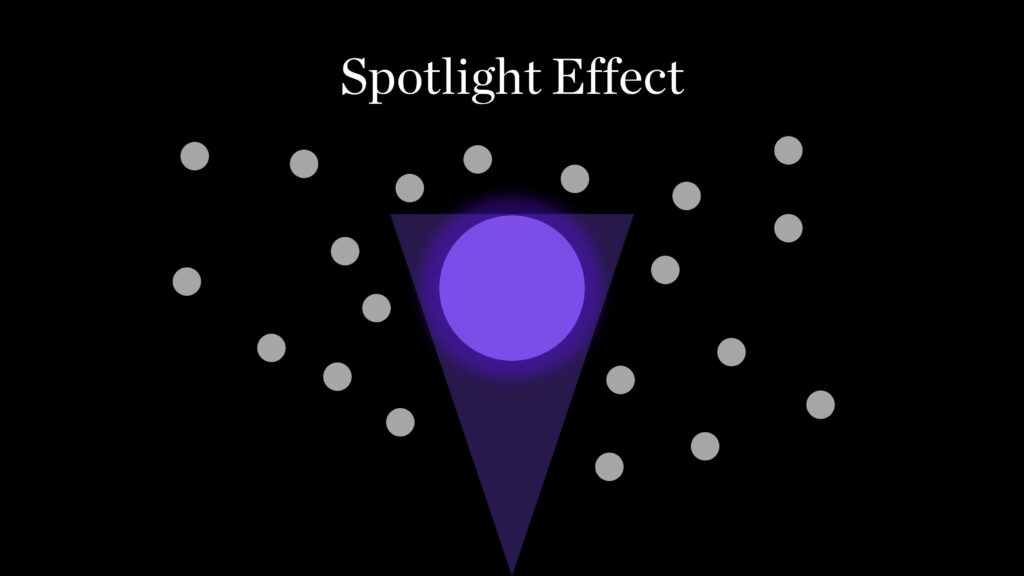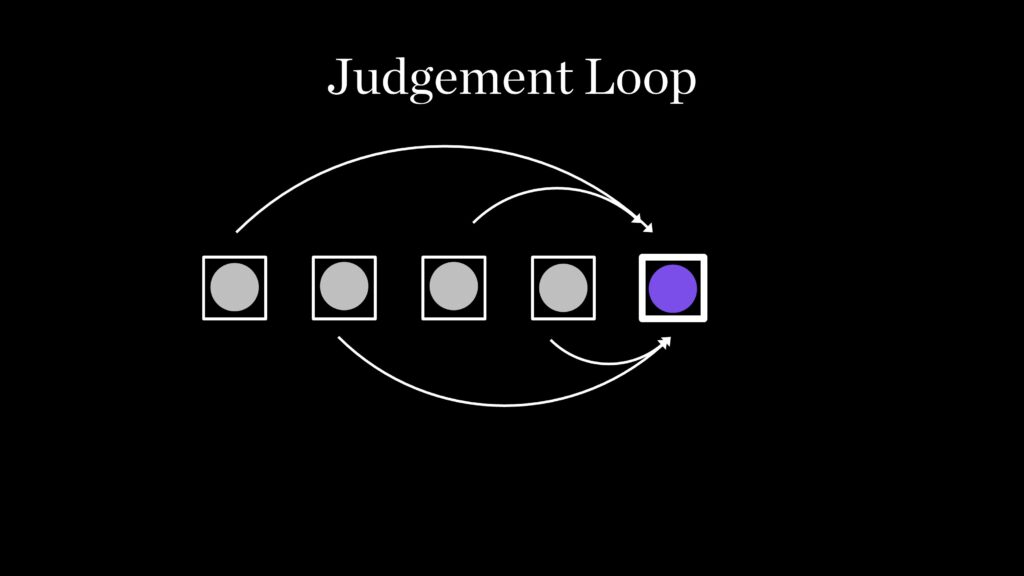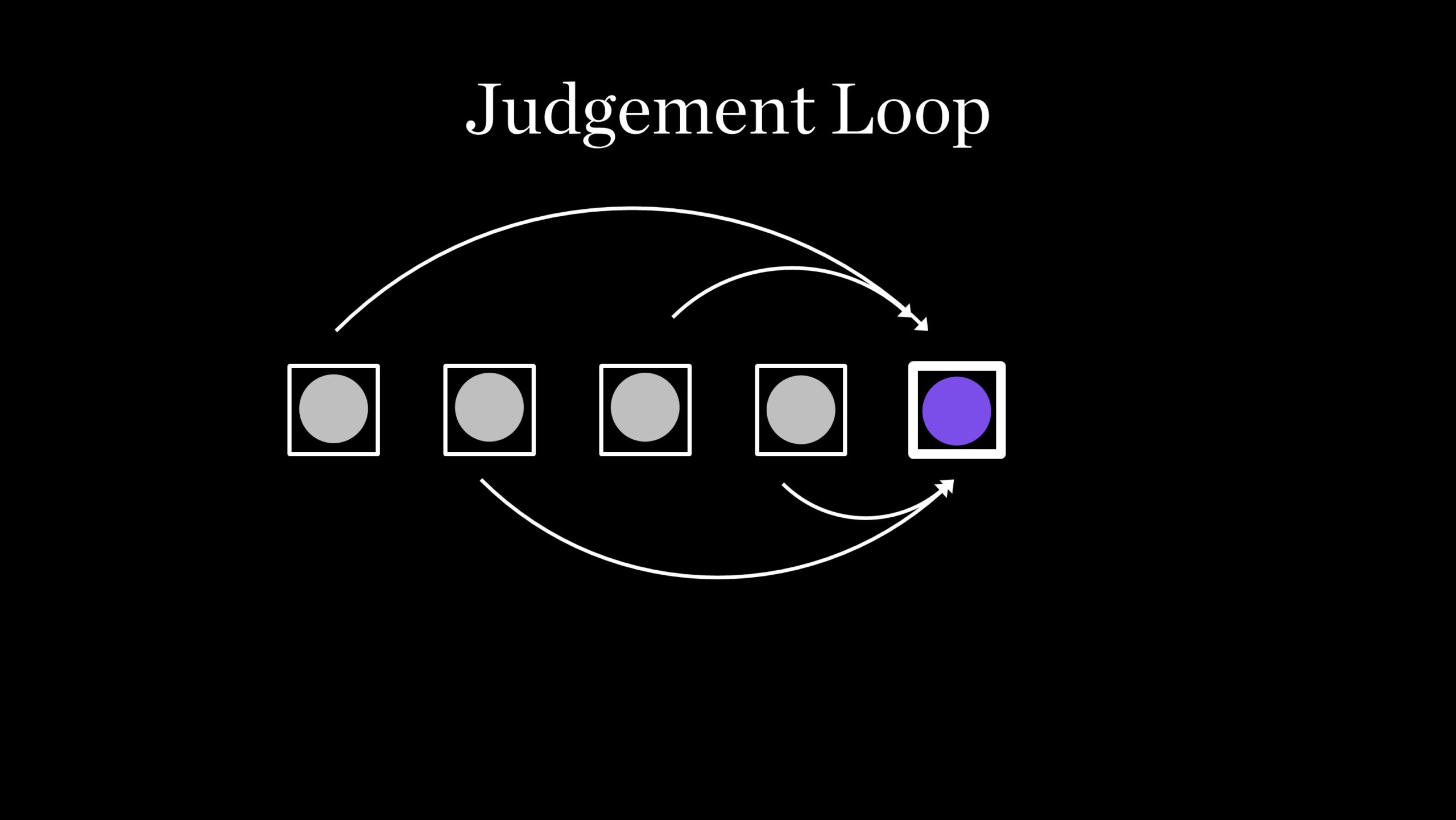Article last updated on January 13, 2022
You can think, “people don’t care about me, poor me,” or you can think, “people don’t care about me, that’s so liberating!”
When people ask this question, it is usually not because they think other people care about them; they want to feel loved.
If you look at the objective view, you’ll be surprised at how much better your life will be.

When you recognize that society has no interest in what you look like or have, you may overcome narcissism and the desire for financial gain.
Look, everyone is going through something, thinking about their problems every day. They have a lot of things on their mind.
You and almost everyone you know tend to be incredibly focused on their self-image.
We worry that others will judge what we wear or that stain of mustard that has remained on our shirt or cat hair.
In reality, people don’t even notice these things.
Even if they were to observe, they would not be bothered since they’re likely distracted by their problems.
We tend to live in a spotlight effect or a judgment loop.
First, I’ll cover the spotlight effect.
The Spotlight Effect

The egocentric tendencies are called the spotlight effect and the narcissism effect.
The spotlight leads to an over-focus on our thoughts and feelings, and it also causes us to ignore other people’s needs and desires.
So, let’s say you go out with friends and get into a fight with one person.
You feel like you’ve been wronged, but you really haven’t been.
It’s just a misunderstanding between two people who probably didn’t mean anything wrong by it.
But because you felt hurt and angry at this person, you decided to take it out on them when they weren’t even involved in the problem.
This is where the spotlight comes in.
You focus on yourself and how you feel and forget about everything else.
This tendency to focus on ourselves is why we often find ourselves in this situation.
When we become too preoccupied with our own lives, we neglect to consider our actions’ impact on others.
We fail to see that there might be someone else who is suffering from the same thing.
And we fail to realize that maybe we shouldn’t be taking it out on them for no reason.
There’s a full spotlight effect ranging from natural egocentricity to a complete disorder that can cause havoc on relationships.
Some people may have Narcissistic Personality Disorder (NPD).
They tend to believe that they are superior to others and are always suitable.
They put themselves first above all others.
If they do not get their way, they’ll use any means necessary to make sure that they win.
Anxiety about how others see us indicates social sensitivity and maturity.
The problem arises when we frequently experience a higher perception of others’ opinions and believe that others are critical and judging us instead of understanding and supporting us.
A typical example is when a child becomes anxious about his parents’ opinion of him.
He worries that he isn’t doing enough, good enough, etc.
He then takes it out on himself by feeling guilty and ashamed.
This is a sign of immaturity and insecurity.
As children grow up, they learn to understand the perspective of others.
They learn to accept criticism and to forgive those who have hurt them.
That’s when they start to develop empathy.
The spotlight effect is a result of our living in our heads.
We think about ourselves so much that we forget about everyone else.
That is one of the main reasons why people only care about themselves.
Moving away from the spotlight
Recognize that nobody really cares more than you think they do.
It’s a lot easier said than done, isn’t it?
Here are some ways you can go about it.
Be aware that you’re not a mind reader.
We all have our own minds and are also prone to uninformed thinking.
The issue is that we are so used to our inner thoughts that they begin to appear unrealistically natural.
For instance, if you tell your friend that she looks pretty today, she will likely agree with you.
However, if you ask her what she thinks about herself, the chances are that she won’t say anything positive.
So, remember that everybody has their own ideas about themselves, and you should never assume that they think about themselves.
Instead, try asking them directly what they think.
It would help if you relied on objectivity because you are not a mind reader.
You will never know what another person is thinking unless you ask them.
Don’t take things personally
Just because somebody says something doesn’t mean that they mean it.
It’s easy to misinterpret what someone is saying or doing.
People often say things without realizing that they are hurting others, and they don’t even realize that they are causing harm.
Don’t take everything at face value. Sometimes, people say things that aren’t true.
They might be trying to manipulate you.
Or they might be trying to build rapport.
When you notice this happening, ask yourself whether the person is sincere.
Check what you consider important
Recall the most recent time you went to the store for groceries, walked along the sidewalk, hopped on the train, or used the elevator.
Now, try to recall one specific detail about someone you met in each of those scenarios. Try to recall an instance when you were unfavorably judged by the other person in one of these situations.
What was going through your head when you noticed this? What did you feel? How did you react?
How did you respond?
Try to identify the emotions that you feel. Was there anger? Did you get sad? Were you embarrassed?
If you can answer “yes” to any of these questions, then you have probably experienced the spotlight effect.
Try to analyze the situation objectively
Remember that you are not the center of the universe. Everybody has their own life, and nobody knows you better than you know yourself.
Think about how you would act under similar circumstances.
Would you behave differently? Would you act differently?
How would you react?
Remember that you are not the only one who feels this way.
Everybody else has their own thoughts about themselves.
And they may not always be happy with what they see.
But they still have feelings too.
It would help if you didn’t judge them.
Judgement Loop

A judgment loop is the process of evaluating ourselves or others based on standards set up by society.
Judgment is a negative emotion that leads us into self-defeating behaviors, and it is the result of comparing ourselves to others.
We tend to compare ourselves to others, which causes us to become unhappy with ourselves.
That’s how we nurture a feeling of low self-worth and a fragile sense of inadequacy.
So, it is no wonder why you would start saying, “People only care about themselves” in a negative way.
We create a sense of low self-worth and believe that nobody cares about us.
This creates a vicious cycle.
The more we focus on our weaknesses, the worse we feel. The worse we feel, the more we focus on our flaws.
Judgment loop can lead many people to fall victim to:
1. Comparison
3. Imitation
5. Moralistic Bias
7. Self-Loathing
8. Victimhood
10. Rejection
11. Overgeneralization
13. Labeling
There is so much beauty in this world if you are willing to look around.
It is easy to find something good in every person, and every person has something positive to offer.
When you start to care about other people, you will find that you are happier.
Yes, people don’t care about you, but you’ll notice they will care about you more if you care about other people.
It is a simple game of reciprocity.
People will love you if you love them first.
They will respect you if you respect them first.
They will appreciate you if you appreciate them first.
Break the judgment loop by focusing on the positive things in other people.
Don’t let the judgmental voice inside your head control you.
Instead, listen to the voice of reason. Focus on the positive aspects of other people.
Forgive other people for being imperfect.
Stop comparing yourself to others. Stop comparing yourself to others. Stop trying to make everyone think as you do.
Start appreciating other people instead.
Because when you start appreciating other people, you will notice that they will care about you.
FAQ
Here are the most common questions about why most people don’t care about you and why that’s OK.
Why do I feel like everyone is judging me?
To be blunt, this is a problem with low self-worth. If you feel like everyone is judging you, you feel inadequate. By thinking that everyone is judging you, you create an internal dialogue that says, “I am bad.”
If you really want to change this habit, you need to change your mindset. Start by improving things that are in your control.
What if I am really nice to everybody, would they think about me then?
Not at all.While being nice is good, it is not enough. It would help if you were you, not some version of yourself trying to manipulate other people to like you.
Being nice should be a natural part of who you are, and it shouldn’t be forced or fake.
How to act like you don’t care what others think?
You should not act. This question comes from the spotlight effect point of view because it focuses on how you appear to others.
You will not care what others think of you once you accept that you have no power over their opinion.
Focus on doing things that matter, which are in your control.
How to have healthy relationships with people if I know they don’t care about me?
The only people who will care about you are those with whom you have a healthy relationship.
This is very important to understand. Healthy relationships are built on mutual trust and respect.
It takes time to build these kinds of relationships. But once you have established these relationships, you can expect that the people who care about you will continue to care about you even more.
Do you mean that I should just ignore people who don’t care about me and focus on those who do?
No. Just the opposite. Ignore people who don’t care and focus on those who do. When you focus on the people who care about us, we will notice that they care about us more.
Don’t worry about what other people think because you should focus on building healthy relationships with people who care about you.
How can I experience pleasant emotions now that I know that most people don’t care about me?
People who are happy are happy not because of what happens around them, but because of what is inside of them.
When you stop caring about what other people think, you will naturally become happier and surrounded by successful people.
Therefore, pleasant emotions are inside you regardless of what others think about you.
A hurtful person might try to hurt you by saying negative things about you. But as long as you don’t care about what they say, you won’t be affected by their words.
Summary
When you don’t care anymore about being in the spotlight, and you don’t judge other people, you’ll get what you want, and that is freedom and love.
You now understand that you already have freedom because nobody cares about you, but to get love, you need to give love or create something that other people love.
In short, catch yourself if you have spotlight effect tendencies and stop judging others.


